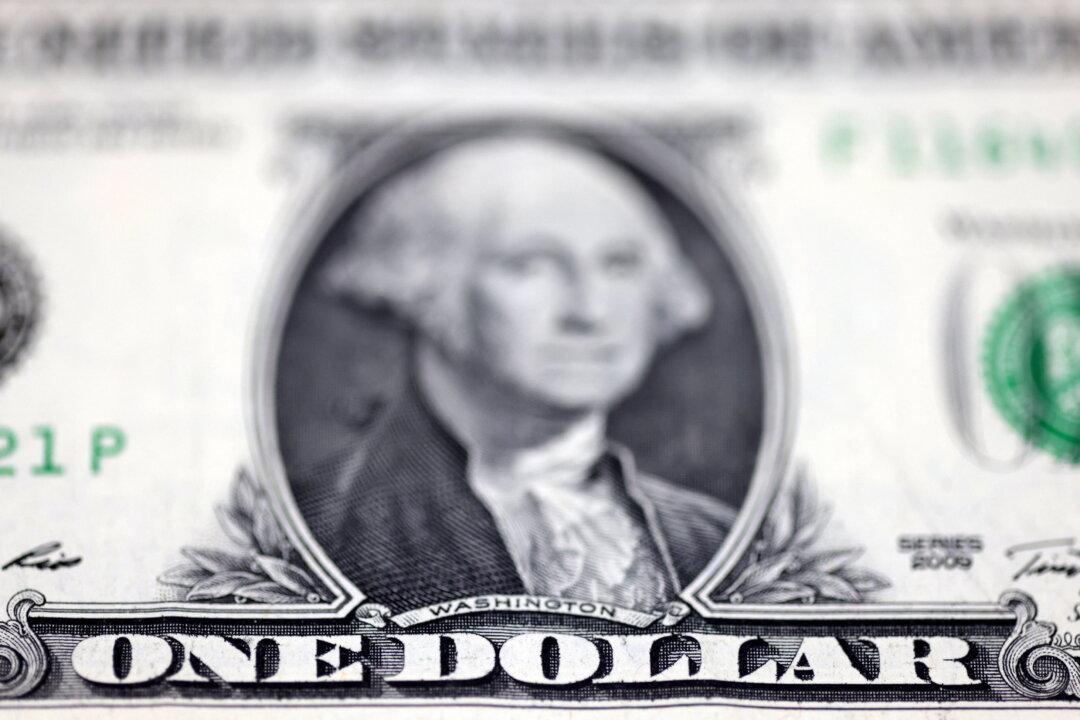LONDON—The dollar headed for its biggest two-day drop in almost 14 years on Friday, as investors piled into riskier assets after a cooler reading of U.S. inflation helped temper expectations for the Federal Reserve to keep raising rates as quickly.
Data on Thursday showed consumer inflation rose 7.7 percent year-on-year in October, its slowest rate since January and below forecasts for 8 percent.





